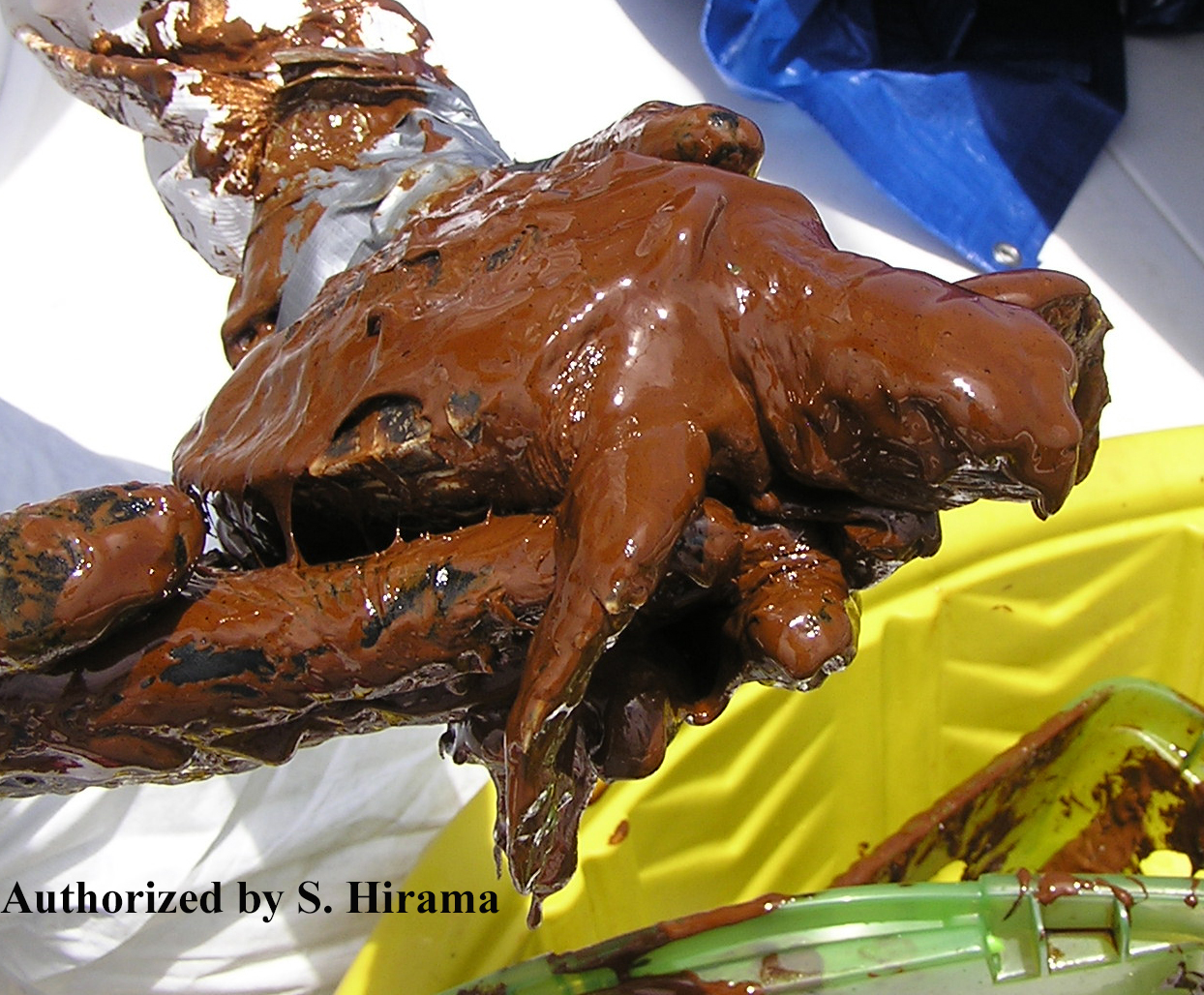
BOSTON, MASS. (May 1, 2024) – In a first-of-its-kind study, new research out of the New England Aquarium is revealing the potential hormone impacts on sea turtles affected by the 2010 Deepwater Horizon oil spill.
**PHOTOS AVAILABLE HERE. SEE ACCOMPANYING DOCUMENT FOR CREDIT INFO**
The Deepwater Horizon oil spill, the largest marine oil spill in history, is estimated to have exposed hundreds of thousands of sea turtles to oil in the Gulf of Mexico and killed up to 86,500 juvenile Kemp’s ridley turtles, a critically endangered species. In the aftermath of the oil spill, 319 live sea turtles were recovered from the ocean and taken to rehabilitation facilities for medical assessment and treatment. Responders collected blood samples to assess the health of each turtle, and a portion of the blood was frozen for future studies.
In the last three years, scientists in the Anderson Cabot Center for Ocean Life at the New England Aquarium developed a novel test to analyze sea turtle blood for the hormone aldosterone. Using this test, along with tests previously developed at the Aquarium, the scientists evaluated the oiled turtles’ blood for a suite of hormones. The results, published in the journal Endangered Species Research, showed that Kemp’s ridley sea turtles had abnormally elevated concentrations of aldosterone and corticosterone (both produced by the adrenal gland) as well as thyroid hormone when they arrived for treatment, which can affect metabolism, electrolytes, and many other important processes.
“As we develop more and more tools to study the health status of endangered sea turtles, we learn more about the impact of various threats and how to better treat the affected animals. We can now use this test to study sea turtle health in other situations,” said Dr. Charles Innis, a senior scientist and veterinarian at the Aquarium, who led the study. Dr. Innis was part of the veterinary team that responded to the 2010 oil spill, where he treated ailing sea turtles at the Audubon Nature Institute in New Orleans.
In the aftermath of the Deepwater Horizon oil spill, with treatment, the turtles’ hormone levels returned to normal over the course of one to two months. Post-rehabilitation, 99 percent of the treated turtles were released back into the ocean.
The hormone tests used in the study had not yet been validated for sea turtles at the time of the oil spill, highlighting the importance of preserving samples so that future technologies can be used to provide further insight into past events.
“This study would not have been possible if the team did not have the foresight in 2010 to archive these samples,” Dr. Innis said.
The results of the study support previous research published in 2012 that analyzed blood data and found significant physiological impacts to sea turtles exposed to oil.
Kemp’s ridley sea turtles are a critically endangered species, facing threats including fisheries interactions, climate change, ocean pollution, and degradation of their habitat. Adults of this species are primarily found in the Gulf of Mexico, nesting on beaches in Mexico and Texas. Rescue and rehabilitation efforts help to conserve this species. The New England Aquarium operates one of the largest sea turtle rescue and rehabilitation programs in the world at its Sea Turtle Hospital in Quincy, MA.
The study in Endangered Species Research was funded by the Morris Animal Foundation.
MEDIA CONTACT: Pam Bechtold Snyder, psnyder@neaq.org; 617-686-5068
